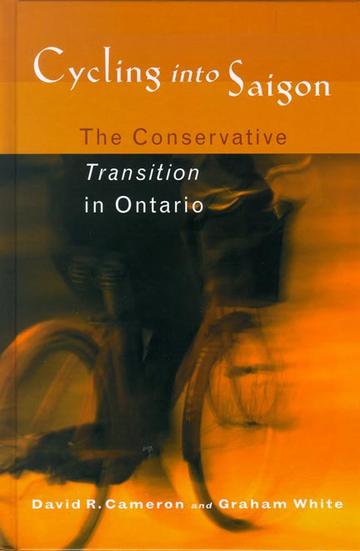About BC Books Online
BC Books Online was created for anyone interested in BC-published books, and with librarians especially in mind. We'd like to make it easy for library staff to learn about books from BC publishers - both new releases and backlist titles - so you can inform your patrons and keep your collections up to date.
Our site features print books and ebooks - both new releases and backlist titles - all of which are available to order through regular trade channels. Browse our subject categories to find books of interest or create and export lists by category to cross-reference with your library's current collection.
A quick tip: When reviewing the "Browse by Category" listings, please note that these are based on standardized BISAC Subject Codes supplied by the books' publishers. You will find additional selections, grouped by theme or region, in our "BC Reading Lists."
The essence of democracy is the peaceful and legitimate transfer of government. In 1995 in Ontario, the omens for a successful transition weren’t promising. Almost no one had expected Mike Harris’s Common Sense Revolution to catapult his Progressive Conservatives from third-party obscurity to victory in the June election. The Harris manifesto declared its intention to dismantle almost every policy of the defeated NDP administration of Bob Rae. Weeks of confrontation and confusion seemed inevitable. Yet, as Cameron and White compellingly describe, the transition was a surprising success, involving necessary co-operation between political mortal enemies. Cycling into Saigon has important lessons for everyone involved or interested in this key stage of the electoral process, wherever it takes place.
David R. Cameron and Graham White are professors in the Department of Political Science at the University of Toronto.
- Short-listed, Donner Prize, Donner Foundation
In this fascinating work, the authors examine how the transition of government in Ontario in 1995 was a surprising success involving, as it did, the necessity of co-operation between political mortal enemies. Cycling into Saigon has important lessons for everyone involved or interested in this key stage of the electoral process, wherever it takes place.
[This book] makes an important contribution to the sparse literature on transitions in Canada and in parliamentary regimes generally … A concluding section neatly sums up the authors’ advice on transition planning. It is so wise and plainly stated that their book will almost certainly become essential reading for future transition teams in Canada, and it merits attention in other parliamentary democracies as well.



